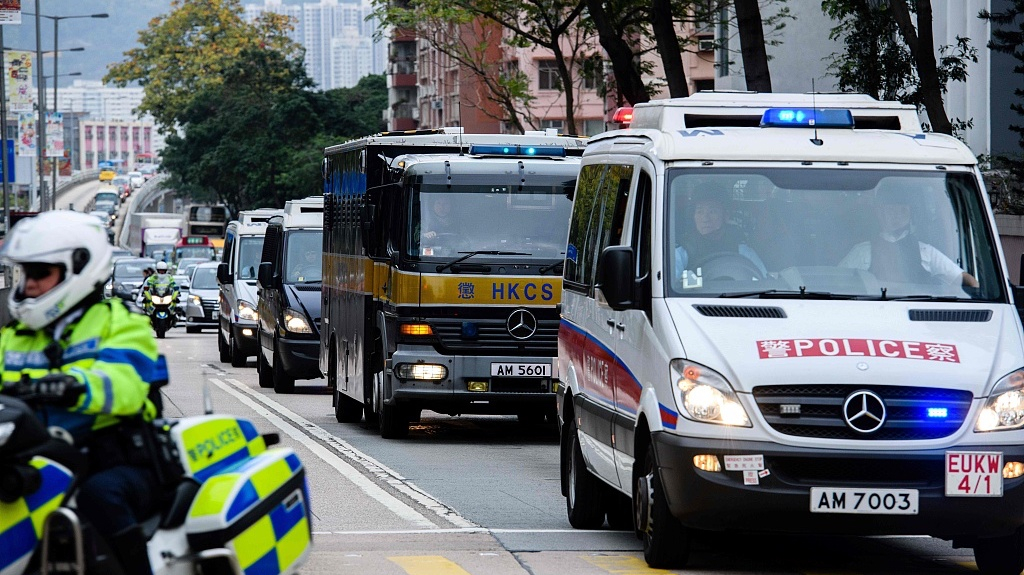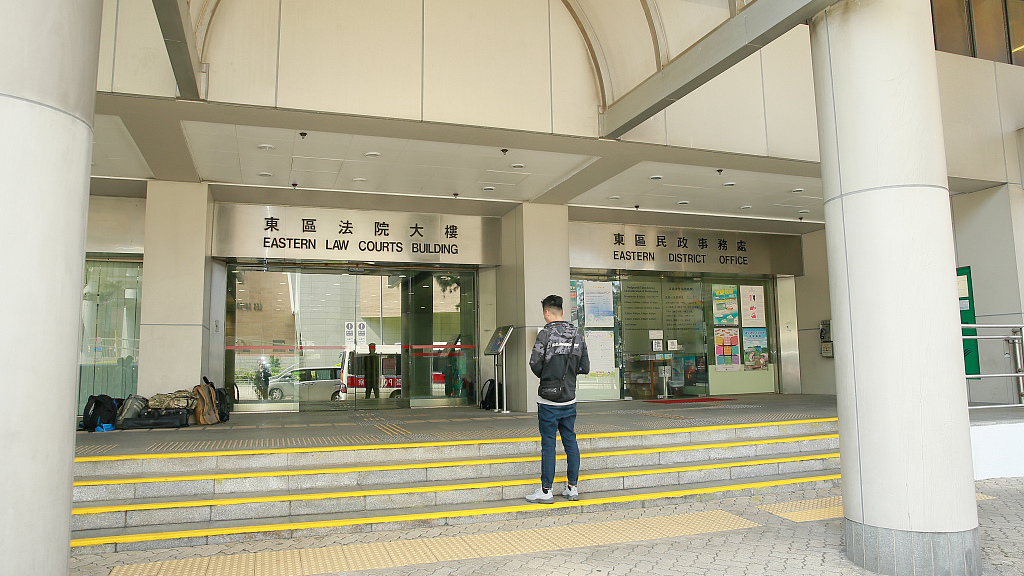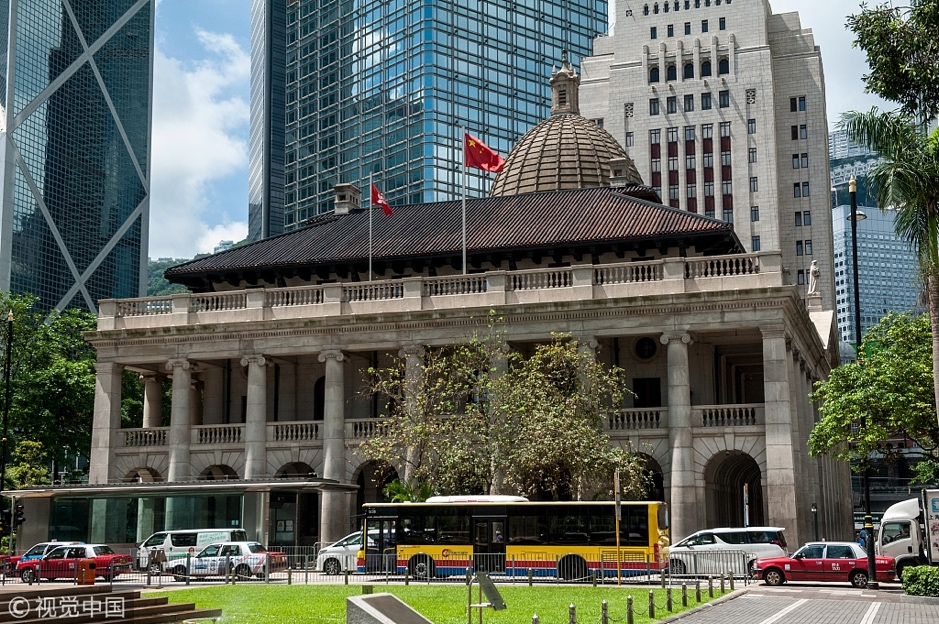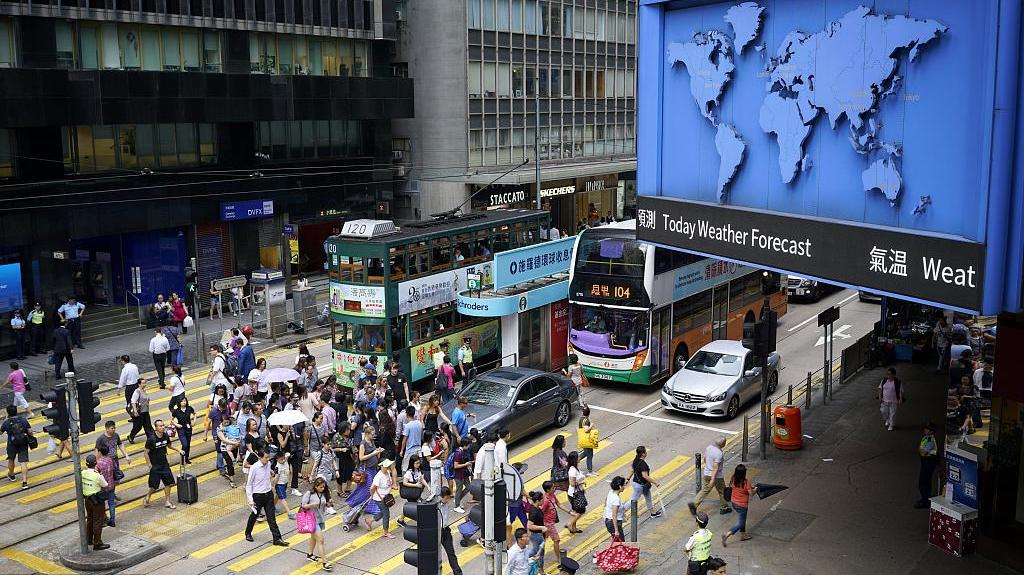
TV Show
17:18, 12-Apr-2019
Hong Kong’s fugitive transfer law won't bring political prosecution
The Point with Liu Xin
01:15

Hong Kong's efforts to plug a legal loophole to ensure fugitives face justice has been considered controversial. Critics claim that the bill will be an excuse for the Chinese mainland to force Hong Kong to transfer "political prisoners." However, details from the amendment suggest otherwise.
Whatever crime a person is accused of committing in the Chinese mainland must also be considered a crime in Hong Kong before they can be transferred, according to a revision of Hong Kong's Fugitive Offenders Ordinance. The amendment also states that no surrender shall be made for any political offenses irrespective of how the offenses are described in the request.
China's foreign ministry has responded that the amendment is a necessary measure to facilitate Hong Kong's cooperation with other regions and countries.
Experts believe the changes tap into fears of reduced rights for Hong Kong residents while the Chinese mainland has made strides in improving its rule of law.
Zhong Houtao, a researcher at the Chinese Academy of Social Sciences, said that the Chinese mainland has improved its legal construction and its legal system. "In the past 70 years, it has enacted more than 100,000 acts and regulations implemented in almost every area in our society. For cross-Strait relations, we have enacted a joint crime fighting and mutual judicial assistance agreement." Zhong sees blaming the Chinese mainland for all the problems as purely destructive.
High-profile overseas murder
01:02

A high-profile murder case in 2018 spurred the amendment. A Hong Kong resident was murdered by her boyfriend while they were vacationing in southeast China's island region Taiwan. Authorities tried to prosecute her boyfriend, but the man returned to Hong Kong and has not been sent back to Taiwan to face charges as Hong Kong's fugitive law doesn't apply in Taiwan.
Rob Koepp, the director of The Economist Corporate Network, said that due to a loophole in the fugitive law, the suspect is able to reside in Hong Kong without having to worry about being transferred. He also noted a case of a Macao man being able to hide out in Hong Kong without concerns for being sent back to Macao for his crimes.
Chen Zhimin, formerly China's Vice Minister of Public Security, told reporters at this year's Two Sessions that there were more than 300 fugitives in Hong Kong fleeing from the mainland.

The Court of Final Appeal of the Hong Kong Special Administrative Region, China, September 19, 2018./ VCG Photo
The Court of Final Appeal of the Hong Kong Special Administrative Region, China, September 19, 2018./ VCG Photo
The crux of the problem lies in the relevant provisions of Hong Kong's current Fugitive Offenders Ordinance and Mutual Legal Assistance in Criminal Matters Ordinance. The regulation was enacted on April 25, 1997. Hong Kong reportedly has reciprocal agreements with twenty countries including the United States, the UK, Australia, and New Zealand.
The current law hinders Hong Kong from providing criminal judicial assistance to the Chinese mainland, Macao, and Taiwan, making Hong Kong a haven for criminals.
Hong Kong cannot prosecute people who committed crimes in Hong Kong but fled to countries and regions that Hong Kong has not signed bilateral agreements. Also, for Hong Kong residents who were victims of crimes in places without bilateral agreements, it's difficult to pursue criminal responsibility.
The amendment would allow Hong Kong to handle requests for assistance and surrender of offenders on a case-by-case basis with any place with which Hong Kong has not signed a long-term agreement. Koepp raised a bigger question of how big this issue is versus the broader concern of how much faith people put in the laws of these other territories that their rights will be protected.
Changes tap into fears of reduced rights
01:51

Cheung Siu Wai, senior lecturer at Hong Kong Baptist University, said that Hong Kong has a very high degree of autonomy. Some people who opposed these changes think they could be too broad. Hong Kong has a very high degree of protection for its residents and if you're not convicted, you can be released on bail. Residents fear they won't get the same protection elsewhere. Cheung thinks we need to wait and see how the mainland judicial system carried out the law in letter and in spirit.
"And if we prove that the mainland can provide all these protections and do these things in accordance with the law and give similar or not exact but similar treatment towards the people involved, then people will gradually become aware that this is a good way to go forward," Cheung added.
At present, the public consultation on the amendments has been completed. During the consultation period, about 4,500 opinions were received, of which 3,000 supportive. The bill has been submitted to a committee of HK's Legislative Council for detailed scrutiny.
(If you want to contribute and have specific expertise, please contact us at opinions@cgtn.com)

SITEMAP
Copyright © 2018 CGTN. Beijing ICP prepared NO.16065310-3
Copyright © 2018 CGTN. Beijing ICP prepared NO.16065310-3